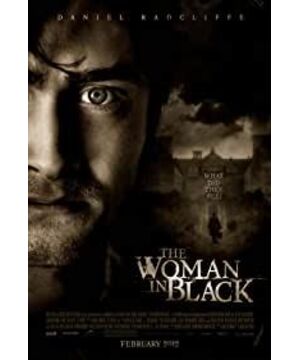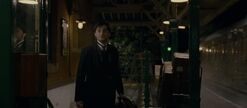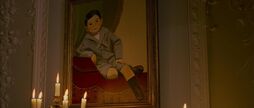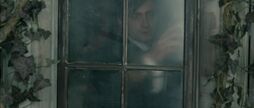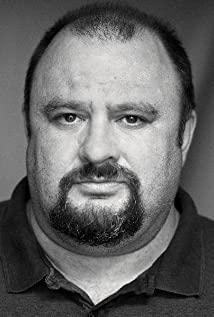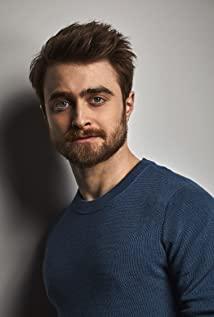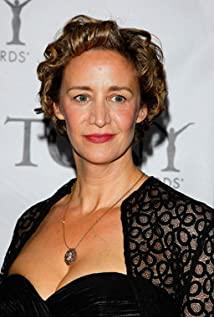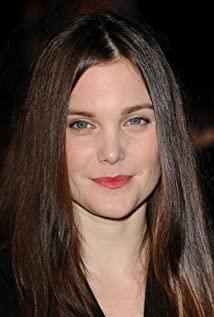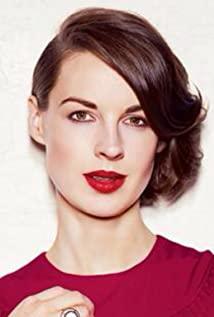As for the rest, it's just too general. There are loopholes in the plot settings, unclear external actions and psychological motivations of the characters, and incoherent jumps in the relationship between the characters, all of which make the whole movie somewhat anticlimactic. It's like a ball with only holes. After finally blowing enough air, after a few shots, it collapsed to the point where it lost its strength. The picture is deliberately darkened. Although it is said that the cold and dark tone is to set off the atmosphere of the movie, it is not necessary to make the whole movie so dark. Sometimes I almost feel that I don't need to care about the actors' acting skills, because many times the expressions on their faces are not clear at all. In short, the lack of chiaroscuro tones, both inside and out, greatly diminishes the drama of the film.
Arthur Kipps, played by Daniel Radcliffe, is a clerk employed by an estate processing company. His beloved wife died while giving birth many years ago, and the father and son have been dependent on each other since then. Once, he was sent to a remote town to investigate the last will of a woman who committed suicide. But since he came to that small town, he found that the people there were apprehensive about the fact that he was going to investigate the mansion left by the woman. And with Kipps' investigation, one after another in the small town there were unfortunate children. Although Kipps finally found out why the town was cursed, he and his son did not survive...
Although the film "Woman in Black" was well-made, after watching it, a question lingered in my mind: why do so many similar films like to make a fuss about children? In this movie, for example, Kipps' son and the small town kid are both the revenge objects of the woman in black, although the connection between who she chooses to kill and who she seeks to revenge on is somewhat elusive. However, the reason why this black-clothed woman has become a lingering grudge who picks on children is because of her husband's derailment and the death of her son. In fact, in many horror and thriller films, the child is either the innocent victim or the trigger for a chain of events. In this film, children play both the role of the former and the latter. But why are horror and thriller movies so popular with children? Why in this type of films, children who should be innocent and innocent have instead become the source and object of terror? What makes adults feel fearful of children?
Before answering these questions, perhaps we also need to ask why people are afraid. As far as movies are concerned, one of the primary means of creating an atmosphere of terror and horror is to put people in an environment beyond their reach. Whether it’s because of falling into a trap from being kept in the dark or trying to escape a situation, fear is often associated with the powerlessness, helplessness, helplessness, and hopelessness of characters when faced with a situation beyond their control or unknowable. Hopelessness, even a sense of despair. This may be one of the reasons why horror-thrillers often shoot children. The complete process of the human life cycle is often associated with birth, aging, illness and death. Because old age is often thought of as a stage of life associated with death, it is often thought of as a natural phenomenon when a person passes through the stages of the life cycle and dies at a high age (although this connection can easily lead to a specific discrimination and inherent prejudice, but this point is not the focus of this article, so it will not be discussed for the time being). The corresponding deaths of people before their full life cycle, whatever the cause, are often considered unnatural. Therefore, a series of words related to premature death, such as "death at an early age", "death of fragrance and jade", "death in an early age", "short death", and "death in an early age", often have feelings of pity and pity. And this shock is especially true for children who die prematurely. In horror thrillers, children's lives come to an abrupt end, to some extent, underscoring such people's unpredictable and uncontrollable frustration with life. And this frustration, to be precise, is relative to adults. Children who are at the beginning of the life cycle are often the least resistant period of people's life. The protection of children is often considered the responsibility of adults. And when innocent children are killed one by one in the movie, not only are they deprived of their right to grow up, but adults (including the audience) also declare their failure to protect the young. In other words, many of the fears people have when watching such films stem from adults questioning their own abilities.
The same reason explains why so many horror thrillers like to use children as evil inducers. Adults always pretend to be strong in front of children. In the face of children who lack physical strength and experience in the world, adults often have a sense of arrogance that they are in control. In real life, adults rarely see vulnerable children as a direct threat to them. Indeed, for many adults, children are the most innocent in the world, and as a result, adults rarely guard against children. However, in horror thriller movies, the unpredictability of children's behavior is greatly enhanced. This in turn reverses the perception of the power balance that people are accustomed to. Adults can easily develop a sense of frustration with their own abilities when children who are considered weak continue to pose a threat to adults. This also explains why in similar films, women and children are often placed in the position of victims or threats. The reason for this is that children and women are often positioned as the weak side, while adults and men are regarded as the strong side, and the film deliberately subverts this relationship, so that the latter has self-doubt and denial, and thus out of a fear. However, such a relationship between characters does not reflect a society's inherent cognition of the relationship between strong and weak: a strong and weak relationship that reflects the artificial recognition of the patriarchal society?
View more about The Woman in Black reviews


